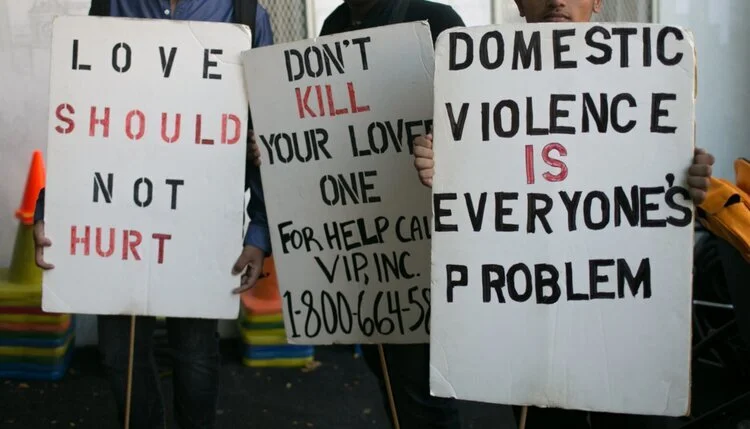Opinion: Back to school stress can spark domestic violence
/The Mayor’s Office to End Domestic and Gender-Based Violence committee highlights the back-to-school dynamics. Photo by William Alatriste/City Council
By ENDGBV Voices Committee
Back to school is generally accompanied by angst, trepidation, and bated excitement. Children and parents alike look forward to this time, usually after a long summer break when they have exhausted one other’s company and have just about run out of fun things to do.
It is the year 2021 and we are closing in on the second year of a global pandemic. In the fall of 2020, we knew there would be no in-person instruction due to the COVID-19 numbers. We persisted and endured several closures due to subsequent outbreaks and incidental infections in schools all over the city. We made do even though many of us know that children need face-to-face instruction. In addition to reading, writing and math, students also work on social and emotional skills in consistent educational settings.
There are several benefits of in-person learning. Children gain access to mental health services, structured activities and play therapy, for example. And now children will be re-introduced to vital resources they need to thrive. But there are a few drawbacks to reopening learning institutions. Currently, there is waning immunity among vaccinated individuals along with more infectious variants of the virus circulating namely the Lambda and Delta strains, the latter of which seems to be affecting children at alarming rates due to its high transmissibility. Some fully vaccinated people can still pass on the virus though the vaccine “still offers a higher degree of protection than natural immunity”. The pandemic is more confusing than ever, however, according to Fox News, 78 percent of parents are comfortable with kids returning to school.
An estimated 40,000 children have lost a parent to Covid-19. These child survivors of trauma will require counseling intervention. A safe return to school will aid in them receiving much needed therapeutic services by school psychologists, social workers, and school counselors. Be that as it may, all children have been impacted by this phenomenon and the long-term effects of a lost year. According to a U.S. National Library of Medicine National Institutes of Health article published on Aug. 24th, 2021, “children may develop feelings of sadness, anxiety, fear of death, fear of parents’ death and fear of being isolated in the hospital which may have a very detrimental effect on their psychological development.” Hence, they really do need mental health and other support services.
We know intimate partner violence is a child health issue. And survivors of domestic and gender-based violence along with their children have been further disadvantaged by the ongoing pandemic. Mandated reports cannot be made, or incidents noted, when children come in with bruises and consistent injuries while school is still closed.
Hopefully, the documented decline of reports of domestic and gender-based violence during the lockdown will be addressed by an increased vigilance with the reopening of school. In addition, thinking about issues and planning if there is a positive case in your child’s class beforehand can help to avoid triggers, stress, and anxiety in the event it happens. A universal mask mandate for everyone two and over, a vaccine mandate, physical distancing and weekly testing are all measures being employed to promote safety within our schools.
We had faith in our administration and healthcare system that the availability of the Covid-19 vaccines would put us in a better place by this school year. According to Mansoor Amiji, distinguished professor and chair of the Department of Pharmaceutical Sciences at Northeastern University, “The virus is constantly changing making herd immunity an unattainable goal.” There is also talk now of the widespread administration of boosters, however the director of the WHO, Tedros Adhanom Ghebreyesus, is against them citing instead that priority should be given to raising vaccination rates among countries where only 1 or 2 percent of the population has been inoculated. He further stated that if “vaccination rates are not raised globally, stronger variants of the coronavirus could develop and vaccines intended as booster shots, should be donated to countries where people have not received their first or second doses.”
Children and adolescents had school, health care services and essential community support systems interrupted. Moving forward, we are not seeking to blame anyone for where we are at, but our students deserve a quality education, in safe, stimulating, and enriching places. We must find some reconciliation of our new normal and our future’s needs.
If you or someone you know is experiencing abuse, help is available via New York City's 24-hour Domestic Violence Hotline at 800-621-4673, New York State’s Domestic and Sexual Violence Hotline at 800-942-6906 and online through Safe Horizon. In an emergency, call 911.
Survivors with access to the internet can visit nyc.gov/NYCHOPE for additional resources and information.
Survivors are also able to call NYC Well (1-888-692-9355) for help with stress and anxiety.




